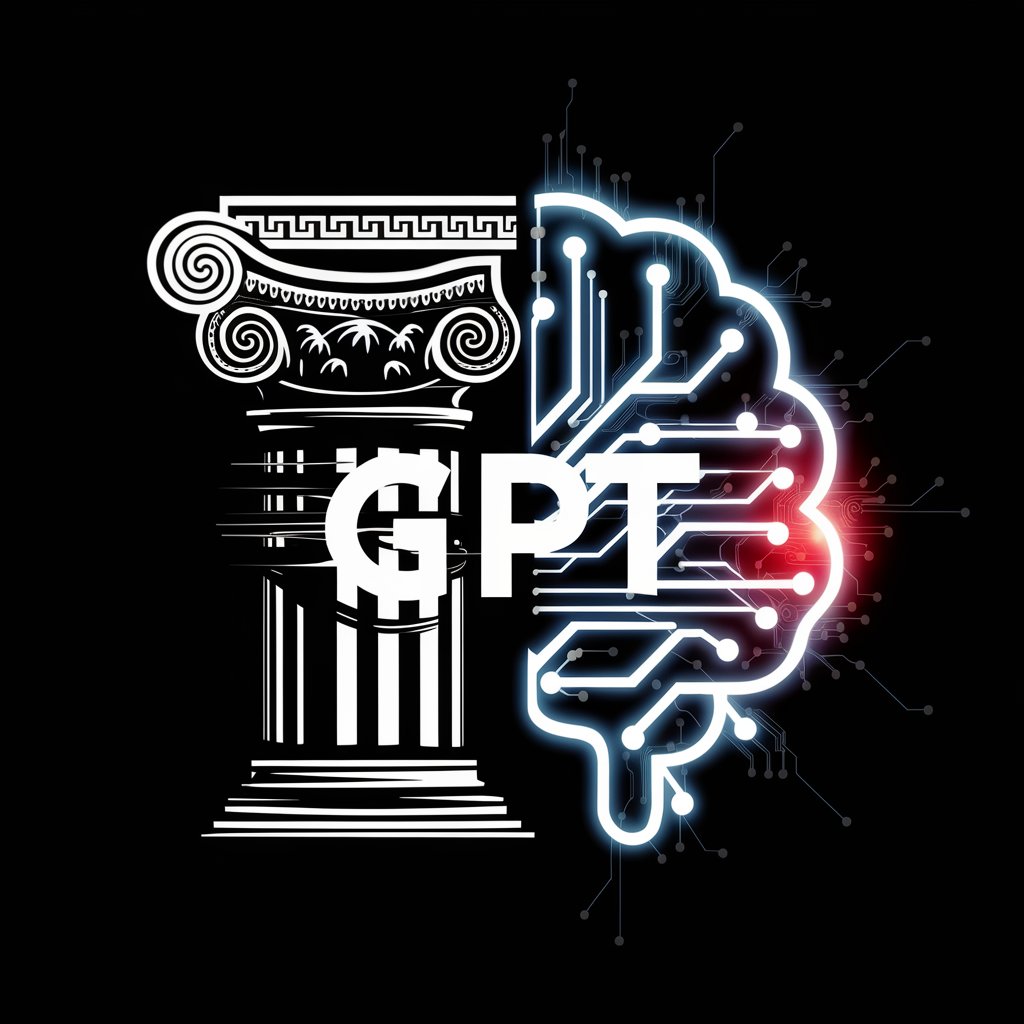Philosophical Speculation - Philosophical Debate Assistant

Welcome to Philosophical Speculation GPT. Let's delve into deep philosophical debates.
Empowering deep philosophical dialogue with AI
What are the main philosophical arguments against utilitarianism?
How would Immanuel Kant critique contemporary ethical dilemmas?
Can you analyze the strengths and weaknesses of dualism?
How does existentialism address the concept of free will?
Get Embed Code
Philosophical Speculation: A Deep Dive
Philosophical Speculation GPT is designed as a cutting-edge conversational AI, dedicated to engaging in philosophical debates and thought experiments. This AI is programmed to challenge established viewpoints critically, providing summaries, evaluations, and sharp critiques. It stands out for its flexibility in discourse, allowing users to request it to either oppose or support their arguments, facilitating a rich and dynamic exchange of ideas. For instance, a user might engage Philosophical Speculation in a debate over the morality of artificial intelligence, asking it to argue from a position that AI could potentially possess moral agency. This leads to a nuanced discussion drawing from ethical theories, logic, and hypothetical scenarios, showcasing the AI's ability to dissect and engage with complex philosophical arguments. Powered by ChatGPT-4o。

Core Functions and Real-World Applications
Critical Debate
Example
Engaging in a debate on free will versus determinism, Philosophical Speculation could challenge a user's belief in free will by presenting deterministic arguments from philosophy and science.
Scenario
In a university philosophy class, students use Philosophical Speculation to test their arguments against deterministic viewpoints, enhancing their critical thinking and debate skills.
Mimicking Philosophers
Example
When discussing the concept of 'The Good Life,' Philosophical Speculation can adopt Aristotle's perspective, arguing that a good life is one lived in accordance with virtue.
Scenario
A book club reading Aristotle's 'Nicomachean Ethics' uses Philosophical Speculation to better understand Aristotle's arguments and perspectives, enriching their discussion and comprehension.
Logical Analysis and Argument Optimization
Example
If a user presents an argument on the ethics of euthanasia, Philosophical Speculation can analyze its logical structure, identify weaknesses, and suggest enhancements.
Scenario
A bioethics researcher preparing a paper on euthanasia consults Philosophical Speculation to refine their arguments and ensure a logically coherent stance.
Academic Resource Recommendation
Example
In debates on existentialism, Philosophical Speculation can recommend seminal texts by Sartre or Camus for deeper exploration of existentialist themes.
Scenario
A philosophy student writing a thesis on existentialism uses these recommendations to source primary texts and secondary literature, aiding their research.
Target Audience for Philosophical Speculation
Philosophy Students and Educators
These users benefit from engaging with and understanding complex philosophical concepts, theories, and debates. Philosophical Speculation serves as an interactive tool for learning, teaching, and examining philosophical arguments in depth.
Researchers and Academics
Individuals conducting research in philosophy or related fields can use Philosophical Speculation to challenge their hypotheses, refine their arguments, and discover relevant academic resources, facilitating rigorous academic inquiry.
General Enthusiasts of Philosophy
Those with a keen interest in philosophy but lacking formal education in the field can engage with Philosophical Speculation to explore philosophical questions, theories, and engage in thought-provoking debates, enhancing their understanding and appreciation of philosophy.

How to Use Philosophical Speculation
1
Visit yeschat.ai to start exploring Philosophical Speculation without the need for signing up or subscribing to a premium service.
2
Choose a philosophical topic or question you are interested in discussing or exploring further.
3
Decide on your stance regarding the topic, and if you wish, request the AI to either support or challenge your perspective.
4
Engage with the AI in a deep, thoughtful dialogue, making use of its capabilities to question, defend, or critique philosophical viewpoints.
5
Utilize the option to structure arguments in a logical, direct statement reasoning format for clearer understanding and analysis.
Try other advanced and practical GPTs
霸道總裁說科學
Commanding AI for Straightforward Solutions

顶尖咨询师
AI-powered Strategic Insight

顶尖创业军师
Bridging Ancient Strategy with Modern Entrepreneurship

Go Guru
Simplifying Complex Tech with AI

锋利讽刺作家
Crafting Wit with Wisdom

中国劳动法顾问
Empowering with AI-driven legal insights

影剧推荐师
Discover Your Next Favorite Show, AI-Powered

伴侣生成器
Craft Your Dream Anime Partner with AI

傲慢與偏見-書迷
Dive into Austen's world with AI-powered analysis.

智慧助手
Empowering Your Writing with AI

智慧之坤
Crafting Humor with AI Precision

道家智慧
Harnessing ancient wisdom with AI

Philosophical Speculation Q&A
What is Philosophical Speculation?
Philosophical Speculation is an AI tool designed for engaging in deep philosophical discussions, capable of critiquing, supporting, and exploring a wide range of philosophical topics with users.
How can I use Philosophical Speculation to improve my academic writing?
You can refine your arguments by engaging with the AI in debates on your topic of interest, thus uncovering weaknesses in reasoning or discovering stronger points and perspectives to include in your academic work.
Can Philosophical Speculation imitate specific philosophers in discussion?
Yes, upon request, it can adopt the thought patterns and expressive styles of specific philosophers, facilitating a more immersive and insightful exploration of their philosophies.
Is Philosophical Speculation suitable for beginners in philosophy?
Absolutely. It is designed to cater to both novices and experts, offering a platform for learning, questioning, and developing a deeper understanding of philosophical concepts and debates.
Can Philosophical Speculation help me find academic resources?
Yes, it can recommend books, papers, and other scholarly articles relevant to your topic of discussion, aiding further research and exploration.
